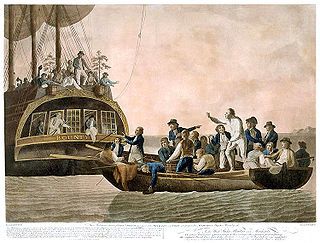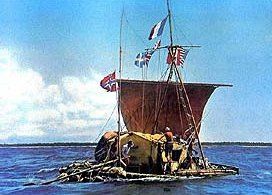April 2014 archive
Apr 29 2014
Cartnoon
Apr 29 2014
The Breakfast Club: 4-29-2014
Welcome to The Breakfast Club! We’re a disorganized group of rebel lefties who hang out and chat if and when we’re not too hungover we’ve been bailed out we’re not too exhausted from last night’s (CENSORED) the caffeine kicks in. Join us every weekday morning at 9am (ET) and weekend morning at 10:30am (ET) to talk about current news and our boring lives and to make fun of LaEscapee! If we are ever running late, it’s PhilJD’s fault.

This Day in History
Apr 29 2014
On This Day In History April 29
Cross posted from The Stars Hollow Gazette
This is your morning Open Thread. Pour your favorite beverage and review the past and comment on the future.
Find the past “On This Day in History” here.
Click on images to enlarge
April 29 is the 119th day of the year
(120th in leap years) in the Gregorian calendar. There are 246 days remaining until the end of the year.
On this day in 1946, Hideki Tojo, wartime premier of Japan, is indicted by the International Military Tribunal for the Far East of war crimes. In September 1945, he tried to commit suicide by shooting himself but was saved by an American physician who gave him a transfusion of American blood. He was eventually hanged by the Americans in 1948 after having been found guilty of war crimes.
After Japan’s unconditional surrender in 1945, U.S. General Douglas MacArthur issued orders for the arrest of the first forty alleged war criminals, including Tojo. Soon, Tojo’s home in Setagaya was besieged with newsmen and photographers. Inside, a doctor named Suzuki had marked Tojo’s chest with charcoal to indicate the location of his heart. When American military police surrounded the house on 8 September 1945, they heard a muffled shot from inside. Major Paul Kraus and a group of military police burst in, followed by George Jones, a reporter for The New York Times. Tojo had shot himself in the chest with a pistol, but despite shooting directly through the mark, the bullets missed his heart and penetrated his stomach. At 4:29, now disarmed and with blood gushing out of his chest, Tojo began to talk, and two Japanese reporters recorded his words. “I am very sorry it is taking me so long to die,” he murmured. “The Greater East Asia War was justified and righteous. I am very sorry for the nation and all the races of the Greater Asiatic powers. I wait for the righteous judgment of history. I wished to commit suicide but sometimes that fails.”
He was arrested and underwent emergency surgery in a U.S. Army hospital, where he was cared for postoperatively by Captain Roland Ladenson. After recovering from his injuries, Tojo was moved to the Sugamo Prison. While there he received a new set of dentures made by an American dentist. Secretly the phrase Remember Pearl Harbor had been drilled into the teeth in Morse Code.
He was tried by the International Military Tribunal for the Far East for war crimes and found guilty of the following crimes:
count 1 (waging wars of aggression, and war or wars in violation of international law)
count 27 (waging unprovoked war against the Republic of China)
count 29 (waging aggressive war against the United States of America)
count 31 (waging aggressive war against the British Commonwealth of Nations)
count 32 (waging aggressive war against the Kingdom of the Netherlands)
count 33 (waging aggressive war against the French Republic)
count 54 (ordering, authorizing, and permitting inhumane treatment of Prisoners of War (POWs) and others)Hideki Tojo accepted full responsibility in the end for his actions during the war. Here is a passage from his statement, which he made during his war crimes trial:
It is natural that I should bear entire responsibility for the war in general, and, needless to say, I am prepared to do so. Consequently, now that the war has been lost, it is presumably necessary that I be judged so that the circumstances of the time can be clarified and the future peace of the world be assured. Therefore, with respect to my trial, it is my intention to speak frankly, according to my recollection, even though when the vanquished stands before the victor, who has over him the power of life and death, he may be apt to toady and flatter. I mean to pay considerable attention to this in my actions, and say to the end that what is true is true and what is false is false. To shade one’s words in flattery to the point of untruthfulness would falsify the trial and do incalculable harm to the nation, and great care must be taken to avoid this.
He was sentenced to death on 12 November 1948 and executed by hanging on 23 December 1948. In his final statements, he apologized for the atrocities committed by the Japanese military and urged the American military to show compassion toward the Japanese people, who had suffered devastating air attacks and the two atomic bombings.
Apr 28 2014
The Breakfast Club: 4-28-2014
Welcome to The Breakfast Club! We’re a disorganized group of rebel lefties who hang out and chat if and when we’re not too hungover we’ve been bailed out we’re not too exhausted from last night’s (CENSORED) the caffeine kicks in. Join us every weekday morning at 9am (ET) and weekend morning at 10:30am (ET) to talk about current news and our boring lives and to make fun of LaEscapee! If we are ever running late, it’s PhilJD’s fault.

This Day in History
Apr 28 2014
On This Day In History April 28
Cross posted from The Stars Hollow Gazette
This is your morning Open Thread. Pour your favorite beverage and review the past and comment on the future.
Find the past “On This Day in History” here.
April 28 is the 118th day of the year (119th in leap years) in the Gregorian calendar. There are 247 days remaining until the end of the year.
On this day, two events occurred involving the South Pacific. Separated by 158 years, one was a mutiny, the other a grand adventure.
 Apr 28, 1789: Mutiny on the HMS Bounty Mutiny on the Bounty: The mutiny was led by Fletcher Christian against the commanding officer, William Bligh. The sailors were attracted to the idyllic life on the Pacific island, and repelled by the alleged cruelty of their captain. Captain Bligh and 18 sailors were set a drift in the South Pacific, near the island of Tonga. Christian along with some of the mutineers and native Tahitians eventually settled on Pitcairn Island an uninhabited volcanic island about 1000 miles south of Tahiti. The mutineers who remained behind on Tahiti were eventually arrested and returned to England where three were hanged. The British never found Christian and the others. Captain Bligh and the 18 others eventually arrived in Timor.
Apr 28, 1789: Mutiny on the HMS Bounty Mutiny on the Bounty: The mutiny was led by Fletcher Christian against the commanding officer, William Bligh. The sailors were attracted to the idyllic life on the Pacific island, and repelled by the alleged cruelty of their captain. Captain Bligh and 18 sailors were set a drift in the South Pacific, near the island of Tonga. Christian along with some of the mutineers and native Tahitians eventually settled on Pitcairn Island an uninhabited volcanic island about 1000 miles south of Tahiti. The mutineers who remained behind on Tahiti were eventually arrested and returned to England where three were hanged. The British never found Christian and the others. Captain Bligh and the 18 others eventually arrived in Timor.
Years later on 1808. am American whaling vessel discovered the colony of women and children led by the sole surviving mutineer, John Adams. The Bounty had been stripped and burned. Christian and the other 8 mutineers were dead. Adams was eventually granted amnesty and remained the patriarch of Pitcairn Island until his death in 1829.
 1947 Thor Heyerdahl and five crew mates set out from Peru on the Kon-Tiki to prove that Peruvian natives could have settled Polynesia. His crew of six fellow Norwegians set sail from Peru on a raft constructed from balsa logs and other materials that were indigenous to the region at the time of the Spanish Conquistadors. After 101 days crossing over 400 miles they crashed into a reef at Raroia in the Tuamotu Islands on August 7, 1947. Heyerdahl’s book, “The Kon-Tiki Expedition: By Raft Across the South Seas”, became a best seller, the documentary won an Academy Award in 1951. The original raft is on display in the Kon-Tiki Museum in Oslo. Heyerdahl died April 18, 2002 in Italy.
1947 Thor Heyerdahl and five crew mates set out from Peru on the Kon-Tiki to prove that Peruvian natives could have settled Polynesia. His crew of six fellow Norwegians set sail from Peru on a raft constructed from balsa logs and other materials that were indigenous to the region at the time of the Spanish Conquistadors. After 101 days crossing over 400 miles they crashed into a reef at Raroia in the Tuamotu Islands on August 7, 1947. Heyerdahl’s book, “The Kon-Tiki Expedition: By Raft Across the South Seas”, became a best seller, the documentary won an Academy Award in 1951. The original raft is on display in the Kon-Tiki Museum in Oslo. Heyerdahl died April 18, 2002 in Italy.
Apr 28 2014
You Are Being Tracked and Monitored
Tune out, turn off, drop in.
I cut off my cable service about two years ago, and I don’t have access to non-pay broadcast television. At first, I had a little anxiety about disconnecting myself from the hive, but in all honesty, other than having to wait a day to stream the latest episode of “The Walking Dead,” it hasn’t made that much of a difference in my life.
One thing I did notice, was how much more peaceful video content became without exposure to advertisements. One thing about streaming TV shows, you realize how much shorter they are than when peppered with ads. Many hour-long TV shows are 1/3 advertisements. I still catch a few ads here and there on HULU and at the free streaming site, Crackle, though it’s usually the same few ads over and over and they are fewer and farther between and of much shorter duration. But what cutting back my exposure to broadcast advertising has done is made me even more acutely aware of all the other myriad sources of advertising to which my family and I are being exposed.
It’s been years since I’ve listened to the radio. I never could stand all the advertisements mixed with music so I use a web service (Spotify) to stream whatever I want without ads.
But turning off the TV and radio have not, unfortunately, made me immune to the bombardment of advertising and propaganda.
Since I’m one of those freaks of society who never learned how to drive, I take a bus, which are often covered with ads on the outside, and strips of ads over the windows on the inside. There are advertisements at the bus stations and transit centers and on the backseats of cabs, these days, the ads in cabs are broadcast on little screens. There are advertisements plastered in toilet stalls in bars and restaurants, and video screens in elevators with advertisements. As you travel along the roadways you cannot avoid the ads on billboards and the sides of buildings.
The print media, too, lately seems like almost nothing but advertisements. Have you picked up a fashion magazine lately? It’s hard to tell where the ads leave off and the content begin. Newspapers, news magazines, National Geographic, Popular Science, Harper’s, The New Yorker – all crammed full of ads to varying degree.
But probably the worst and most insidious advertising is on the internet. Because of the technology of cookies, browsing history, and other “smart” programs that track what sites you visit, what products you look at, what you “like” and even what you post in your Facebook status updates, are all used to expose users to ads targeted expressly to them. Even on dailykos.com, the advertisement at the top of the page is something I’ve looked at on, for example, Overstock.com.
When I log on to Facebook, there are ads related to things about which I’ve posted. Because of my status updates and profile, not to mention the cookies, Facebook knows I live in Seattle, that I’m a mom, that I’m a renter, that I think I’m overweight, and that I smoke. Since I looked at Rent.com recently, I see advertisements about apartments or for real estate seminars being held in Seattle. Because I’ve written about quitting smoking my page shows ads about teeth whitening products. And since I write about getting old and chubby, I see ads that will help melt belly fat. I belong to one or two groups devoted to Flamenco, so I see ads for the latest Gipsy Kings record, and dance performances coming up in Seattle. One time my status update contained “goat cheese” and I kid you not, soon after an ad for goat cheese and other gourmet products shows up in my stream. The ads used to only appear off to the side of one’s feed, but now they are also interspersed throughout users’ feeds as though they were friends’ posts.
Just like VNRs (video news releases, broadcast segments paid for by corporations or government to look like news segments during a news hour, these advertisements are designed to look like your friends’ posts so that you’ll pay attention rather than scroll past them.
The internet has overtaken the TV as the number one delivery method of advertising and propaganda and offers a much more fertile ground for ways to intimately track and specifically target certain users.
This bit has been posted to The Stars Hollow Gazette,,Voices on the Square, Docudharma and Daily Kos.




